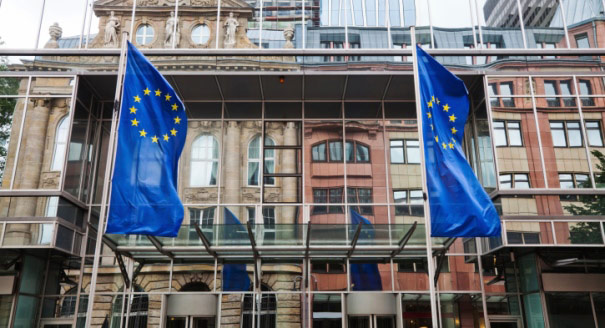Carnegie Europe’s recent publication “A New Ambition for Europe: A Memo to the European Union Foreign Policy Chief” is a straightforward assessment of the urgent tasks ahead for Federica Mogherini. The authors offer a clear and persuasive suggestion for a new strategy to get Europe to where I would like to see it: as an effective, value-driven, and powerful player in international politics.
The world is in upheaval; there are crises and conflicts that are calling on Europeans to act everywhere they look. Carnegie’s memo is a useful manual outlining how to do exactly that.
I first met Mogherini in early November 2014 when she visited Berlin. I truly welcome her excellent initiative to visit all 28 member states’ national parliaments. This aim not only demonstrates her intention to anchor foreign policy in national legislatures and thereby ensure greater legitimacy but also her will to explain EU foreign policy to Europe’s electorate.
A new type of public communication is critical given the rising security challenges Europe faces. For the many issues the high representative needs to cope with, “A New Ambition for Europe” can be referred to at all times. I would like to highlight some of the memo’s most decisive points.First and foremost, the new European Commission that entered office on November 1 needs to reestablish the EU’s capabilities in effective decision- and policymaking. This means coming to an agreement on economic growth in the union. To demonstrate solidarity during economic crises is not only of strategic significance. It is also essentially what makes the EU more than just a partnership of convenience: it is what makes the union truly European.
The new @EU_Commission needs to reestablish effective decisionmaking.Tweet This
The EU has been through some difficult years. The economic, financial, and sovereign debt crises have proved the steadfastness of the EU institutions but have left many wary of further institutional change. The EU’s foreign and security policy institutions are there; it is up to Mogherini to continue to fill them with life and purpose—and success.
The memo makes this point clear: the EU must become secure in its foreign policy purpose. I could not agree more that the union “was built as a peace project among its members, but the peace of Europe now depends on events outside the EU.” Europe’s history of successful integration validates the legitimacy of the EU’s policies. Now, these policies need to be more effectively reflected in the union’s international activities.
However, foreign policy is not merely a playground for idealists who want to make the world a better place. Once again, it is a matter of existential importance, a matter of securing Europe’s welfare and prosperity—not regardless of, but in response to, the many challenges and threats surrounding the continent. The EU’s answer to these threats cannot be of a military nature; rather, Europe needs an even stronger commitment to the liberal world order that the EU strives to achieve and support through its foreign policy.
The memo’s authors unambiguously list the EU’s foreign policy interests, and I often wish politicians could also phrase these interests in such unmistakable terms. To maintain and raise prosperity, to remain safe in security and legal terms, the EU needs to be a major actor on the international stage. But policymakers need to communicate this better to the European public and explore ways of improving the involvement of voters.
.@FedericaMog must fill EU foreign policy institutions with life and purpose.Tweet This
Yet, the most crucial question for the EU’s foreign policy remains: How can the EU become more unified in its activities? How can Europe ensure that Mogherini obtains the support the EU member states need to provide her with?
Only by focusing more closely on the EU’s common goals will it become clear why Europeans need to fully commit to the Common Foreign and Security Policy. As harsh as it sounds, the union cannot be everywhere at the same time. The EU needs to bundle its efforts and resources—politically, economically, socially, and militarily. There are new security threats in energy and cyberspace that call for a united front.
Therefore, the EU needs to focus on key regions and security problems in which it can make a difference—Russia, Eastern Europe and the South Caucasus, the Middle East, and, economically, the Asia-Pacific region. This is what the memo appropriately calls “selective ambition.”
The world as we know it is changing. The EU consistently promotes the principles of liberal order to help manage this change. Ultimately, what defines Europe as an international actor is its unequivocal commitment to rules-based multilateral governance structures. I would like to see EU foreign policy more actively shaping this system of global governance, as the union has unequaled experience in dispute settlement, in conflict resolution, and in the setup of effective and successful governance structures beyond the nation-state.
Finally, the EU needs to ensure that it applies political sensitivity when pursuing its foreign policy goals. Several mistakes of the past could have been prevented had Europeans acquired a more informed and holistic view on the foreign policy targets they had in mind. This also includes thinking ahead in various scenarios and being prepared and not taken by surprise when these scenarios take place. The EU needs to think for the long term but be flexible enough to act when circumstances change.
Due to the many challenges facing EU foreign policy today, and also due to the many opportunities Europe can grab, the title “A New Ambition for Europe” could not be more pertinent for this publication. I am confident that Europeans can ambitiously achieve the strategic goal of a more effective Europe in international politics.






